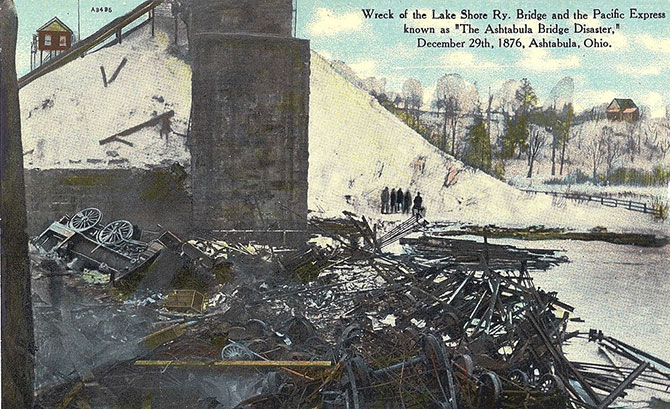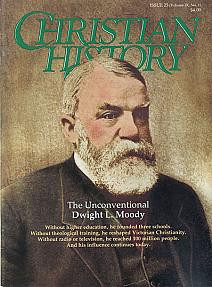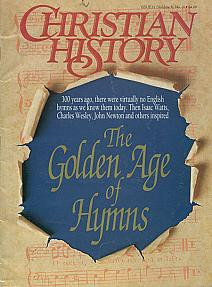WATER, WIND, AND FIRE: THE TRAGIC END OF P. P. BLISS

[Postcard photo from the Ashtabula River Bridge disaster that occurred in 1876—F. M. Kirby Company / [public domain] Wikimedia]
Right here let me notice that some say I’m preaching for effect. That’s what I am doing. I want to affect you; I want to rouse you out of your death-sleep, when I warn you to prepare to meet your God; for “in such hour as you think not the Son of man cometh.”. . .
I think I never spent such a day as I have to-day. This world never seemed so empty, and men never looked so blind away from God, as they do today. It seems, as never before, that I cannot understand how life can go on in madness, how a man can keep away from Christ, when in just a stroke he is gone to eternity, and there is no hope....
These emotional words were preached by Dwight L. Moody. The “good man” of whom he spoke was hymnwriter P. P. (Philip Paul) Bliss. Two days earlier, on this day, 29 December 1876, P. P. and Lucy Bliss had been traveling by train to Chicago when a terrible cracking sounded beneath them. A bridge they were crossing near Ashtabula, Ohio, collapsed. Eleven train cars tumbled seventy feet into the ravine below. Their kerosene heaters set them aflame. Howling winds fanned the flames and the pelting rain did little to douse them. According to some accounts, Bliss managed to extricate himself from the fiery wreckage but dived back into the flame-covered water in a futile attempt to rescue Lucy. Both died. Their bodies were never recovered.
Years earlier, the singer’s strong voice had brought him to Moody’s attention. He became a member of Moody’s extended evangelistic team and soon had many opportunities to share the gospel in song. Bliss was also involved in the publication of hymnbooks. These included hymns of his own. Although the Blisses struggled financially, they devoted the lucrative royalties of his most popular hymnbook to charity. Among P. P. Bliss’s best songs are “Almost Persuaded,” “Hallelujah! What a Savior!” and “Jesus Loves Even Me.”
At the time of his death Bliss had been on his way to Chicago to sing in a service led by evangelist Daniel W. Whittle (another of Moody’s “finds”), for whom Bliss often sang.
Moody saw the spiritual implications of the tragedy:
Little did those people on that train, as it neared Cleveland Friday night, little did they think the sun was going down for them the last time, and that they should never see it rise again. It is going down tonight, as I am speaking, the last sun of the year; and some of you in this assemblage may never see it rise again. Dear friends, are you ready for the call if it comes to you between now and tomorrow morning? This very night you may be called away; your soul may be required by God your Maker. Are you ready to meet the King and Judge of all the earth? Let me put, urgently but kindly, these questions to every soul here tonight.
The Blisses had left their young sons Paul and George with relatives. Moody raised ten thousand dollars to pay for their upbringing (a sum equal to $260,000 or more in 2022 dollars). He also arranged for children to donate pennies to erect a memorial to Bliss in his hometown of Rome, Pennsylvania. But P. P. Bliss’s hymns remain his permanent legacy to the church. One last hymn—among his best—was discovered in his luggage after his death: “I Will Sing of My Redeemer and His Wondrous Love to Me.”
—Dan Graves
---------
For more about Moody, see Christian History 25 Unconventional Dwight L. Moody
for more about hymn writers of that era, see Christian History 31 The Golden Age of Hymns







